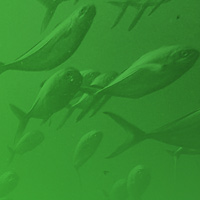-
Grants
13
-
Total Awarded
$6,047,431
-
Years
2009 - 2017
-
Categories
Grants
NatureServe’s mission is to provide the scientific basis for effective conservation action. It has developed a Biodiversity Indicators Dashboard that provides conservation practitioners and policy makers with a quick view of the state and trends of biodiversity and conservation actions at regional, national, and river basin scales. Through charts, graphs, and maps, the online dashboard assembles information on a range of factors that reflect trends in the health of species and ecosystems as well as the threats to biodiversity. This award supports NatureServe’s efforts to make the Biodiversity Indicators Dashboard the prevailing tool used by governments and civil society in charting progress towards global conservation goals, such as the Aichi Biodiversity Targets and the United Nation’s Sustainable Development Goals 14 and 15.
At the IUCN World Conservation Congress on September 2, 2016, NatureServe hosted “Measuring Progress and Challenges to Conservation,” an event that highlighted the Biodiversity Indicators Dashboard. The Dashboard is an interactive tool that visualizes the health and trends of biodiversity, and tracks conservation performance at regional, national, basin, and site scales. Using on-site monitors and kiosks, attendees experienced the Dashboard first-hand and learned how others are using this influential tool to achieve their conservation goals. Achieving global biodiversity goals depends on the ability to monitor, measure, and visualize both environmental trends and the progress of conservation programs. It is also critical in demonstrating results, maintaining credibility, and communicating project impact. This event educated stakeholders about how the Dashboard addresses these critical issues. The event included: a guest speaker, an overview of the tool and demonstration, as well as an opportunity to explore and network.
NatureServe is a non-profit conservation organization with a mission to provide the scientific basis for effective conservation action. Through a 2012 grant, NatureServe developed a fully functional Biodiversity Indicators Dashboard – a web portal providing conservation monitoring information and baselines for multiple indicators in three regions: the Mekong Basin, the African Great Lakes, and the Tropical Andes. This award advances the functionality of the Dashboard globally and extends its use in key countries and regions. More specifically, NatureServe will replicate the success of the Cambodia country-level dashboard in the Tropical Andes and the Great Lakes of East Central Africa. Additional outcomes from the award include continued experimentation with counterfactual analyses; development of mobile applications to access the Dashboard; and a formal launch at the World Conservation Congress in 2016.
NatureServe is a non-profit conservation organization whose mission is to provide the scientific basis for effective conservation action. NatureServe and its network of natural heritage programs and conservation data centers are the leading source for information about rare and endangered species and threatened ecosystems. This award will allow NatureServe to conduct a needs assessment for the Wildlife Conservation Society’s marine monitoring program, and recommend data management tools that support systematic monitoring of fisheries, livelihood, and marine biodiversity indicators in Melanesia, Madagascar, Indonesia, and the Caribbean. This work supports efforts to rigorously monitor the impact of fisheries reform on marine biodiversity in the four geographic priority regions of the Conservation and Sustainable Development program’s coastal-marine initiative.
NatureServe provides scientific information that mainstreams biodiversity conservation in traditional land use planning processes, as well as in climate, infrastructure and natural resource development initiatives. It received a MACEI award from the Foundation in 2014. The purpose of this project is to gather key information that allows analyses of the success investments are having in influencing biodiversity trends. The monitoring data gathered will be disseminated through a novel biodiversity indicators Dashboard currently being developed by NatureServe for MacArthur to support visualization of biodiversity indicators designed to enable tracking of biodiversity and conservation performance data in a clear, online, user-friendly format.
NatureServe’s mission is to provide the scientific basis for effective conservation action. It collects, analyzes, and makes available information about natural ecosystems for decision-makers to manage lands for human wellbeing and biodiversity. The MACEI grant will allow NatureServe to create an innovation fund designed to seed high impact interventions among NatureServe's network membership and fill data gaps in core data sets that support all aspects of their work. The remainder will be used for a more robust website to strengthen its use as a data portal, and strategic communications and public outreach.
NatureServe delivers information and analysis from a network of data centers and natural heritage programs that provide a scientific basis for effective conservation action. The overall purpose of this grant is to help conservation organizations incorporate consideration of climate change into their normal planning and management activities through vulnerability assessment and adaptation planning training courses in Colombia, Ecuador, Peru and Bolivia.
The grant will turn a static proof of concept regional conservation assessment framework developed in a 2010 grant into a dynamic information system that will allow new data to be uploaded, including from partners in three regions, and analytical tools to be created and used for analysis and communication. NatureServe refers to this collection of synthesized data, analytical tools, and visualization systems as the “dashboard assessment.” NatureServe and its national and global partners will move the proof of concept into dynamic operation, through three global objectives: 1) Develop the digital information architecture necessary to allow data uploading from local and national sources, regional aggregation, quality control, and public reporting; 2) Provide scientific analysis of the data to provide insight into the impact of conservation actions. 3) Support other CSD grantees and partners in strengthening national/regional capacity for data upload information the dashboards, building from the insight received in earlier phases.
The project is designed to sustain key NatureServe activities from the concluding “proof of concept” phase in the development of the dashboards assessment framework to an operational second phase. Under Phase II, NatureServe and its national and global partners will move the proof of concept into dynamic operation, through three global objectives: 1) Develop the digital information architecture necessary to allow national input and ownership, regional aggregation and quality control, and public reporting and dissemination of data and analyses; 2) Provide scientific analysis of the data, in particular to provide insight into the benefits of conservation actions; 3) Support regional and national partners, including CSD grantees, in strengthening locally driven monitoring programs for data upload into the dashboards.
To evaluate lessons learned and the future direction in climate change adaptation investment (over two years).
To identify priority watersheds in the tropical Andes for conservation investments (over 18 months).
To assess the status of ecosystems and conservation trends in the Tropical Andes, Great Lakes of East Central Africa, and the Greater Mekong and its headwaters.
To assess ecological integrity and to build resilience to climate change into Andean conservation planning (over two years).





